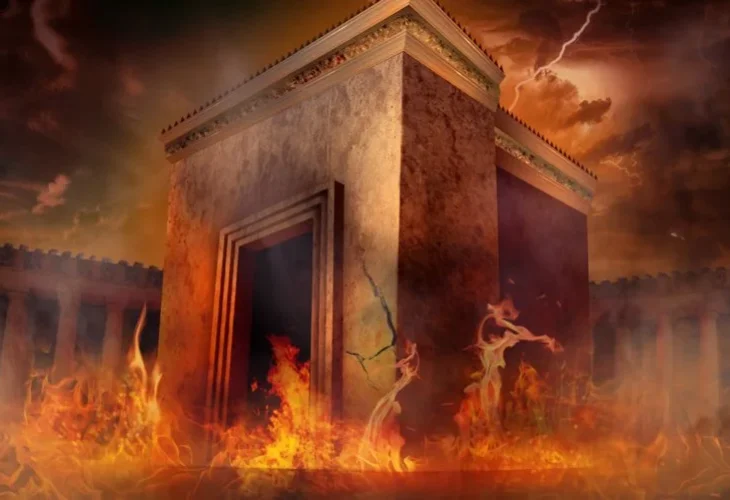Torah Personalities
Titus and the Destruction of the Temple: The Roman Who Defied Heaven and Lost
How the Arrogance of a Roman Emperor Led to His Humiliating End
 (Photo: shutterstock)
(Photo: shutterstock)The Destruction of Jerusalem and the Temple
Titus, the Roman emperor and son of Vespasian, is remembered as one of the most vicious oppressors in Jewish history. He led the brutal conquest of Jerusalem, razed the city to its foundations, and destroyed the Second Temple. Countless Jews were killed during the siege, and many others were exiled.
According to the Talmud, Titus entered the Holy Temple, plunged his sword into the curtain separating the Holy from the Holy of Holies, and saw blood appear on the curtain. Misinterpreting this as proof that he had slain the God of Israel, Titus blasphemed further by desecrating a Torah scroll placed in the Holy of Holies.
He then fashioned a sack from the sacred curtain to carry away the Temple vessels and took them with him to Rome.
On his journey home, a violent storm nearly sank his ship. Arrogantly, Titus mocked Hashem, claiming that the God of the Jews only has power over water since Pharaoh drowned in the Red Sea and Sisera's army was decimated at the Kishon River. “If He is mighty,” Titus said, “let Him face me on land!”
A Divine voice responded: “Wicked one, son of a wicked one, descendant of Esav! I have a tiny creature in My world, a gnat. Go ashore, and let’s see if you can defeat it.”
Divine Justice and Eternal Consequences
When Titus stepped triumphantly onto Roman soil, drunk with power and convinced of his invincibility, a tiny gnat, no bigger than a grain of sand, entered his nostril and lodged itself in his skull. Day and night, it gnawed at his brain, an invisible torment no physician could cure. The once-mighty general, who had destroyed a Temple and defied Heaven, was undone not by an army or a sword, but by one of Hashem’s smallest creations, proof that Divine justice can come in the quietest, most unexpected forms.
Before his death, Titus requested that his body be burned and his ashes scattered across the seven seas, hoping to escape Divine judgment. Yet according to the Talmud, this request became the essence of his punishment; his remains are burned and scattered repeatedly.
His nephew, the future convert Onkelos, is said to have summoned his soul prior to his conversion and asked three questions: Who is important in the World to Come? Should one convert? And what was his punishment? Titus replied that the Jewish people are indeed important, that it is difficult to follow their commandments, so it's better to oppose them, and that his punishment is exactly what he requested: to be burned and scattered again and again.
The story of Titus reminds us that arrogance and desecration may bring fleeting power, but in the end, justice prevails and the honor of the Jewish people endures.

